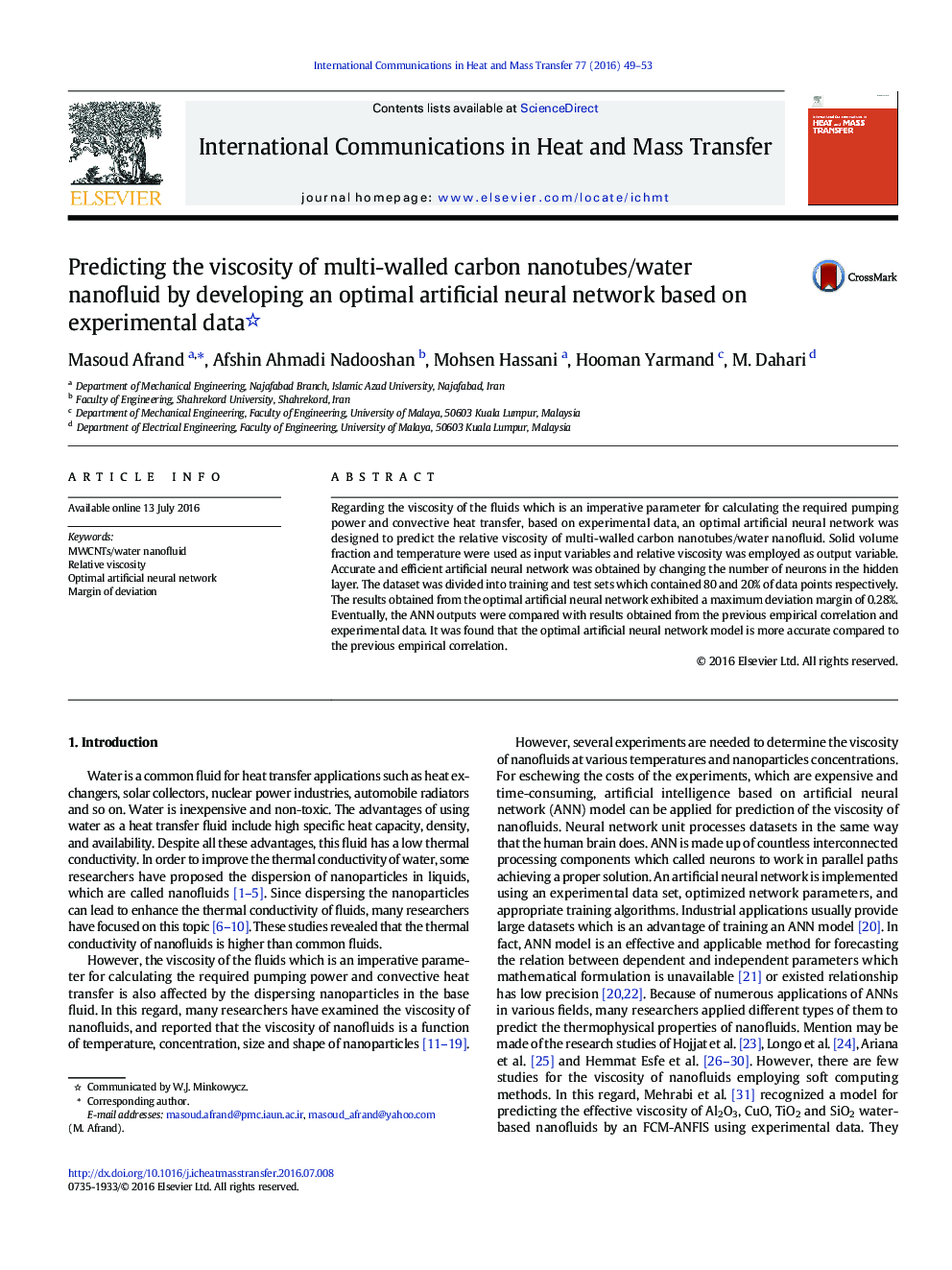| Article ID | Journal | Published Year | Pages | File Type |
|---|---|---|---|---|
| 652816 | International Communications in Heat and Mass Transfer | 2016 | 5 Pages |
Regarding the viscosity of the fluids which is an imperative parameter for calculating the required pumping power and convective heat transfer, based on experimental data, an optimal artificial neural network was designed to predict the relative viscosity of multi-walled carbon nanotubes/water nanofluid. Solid volume fraction and temperature were used as input variables and relative viscosity was employed as output variable. Accurate and efficient artificial neural network was obtained by changing the number of neurons in the hidden layer. The dataset was divided into training and test sets which contained 80 and 20% of data points respectively. The results obtained from the optimal artificial neural network exhibited a maximum deviation margin of 0.28%. Eventually, the ANN outputs were compared with results obtained from the previous empirical correlation and experimental data. It was found that the optimal artificial neural network model is more accurate compared to the previous empirical correlation.
